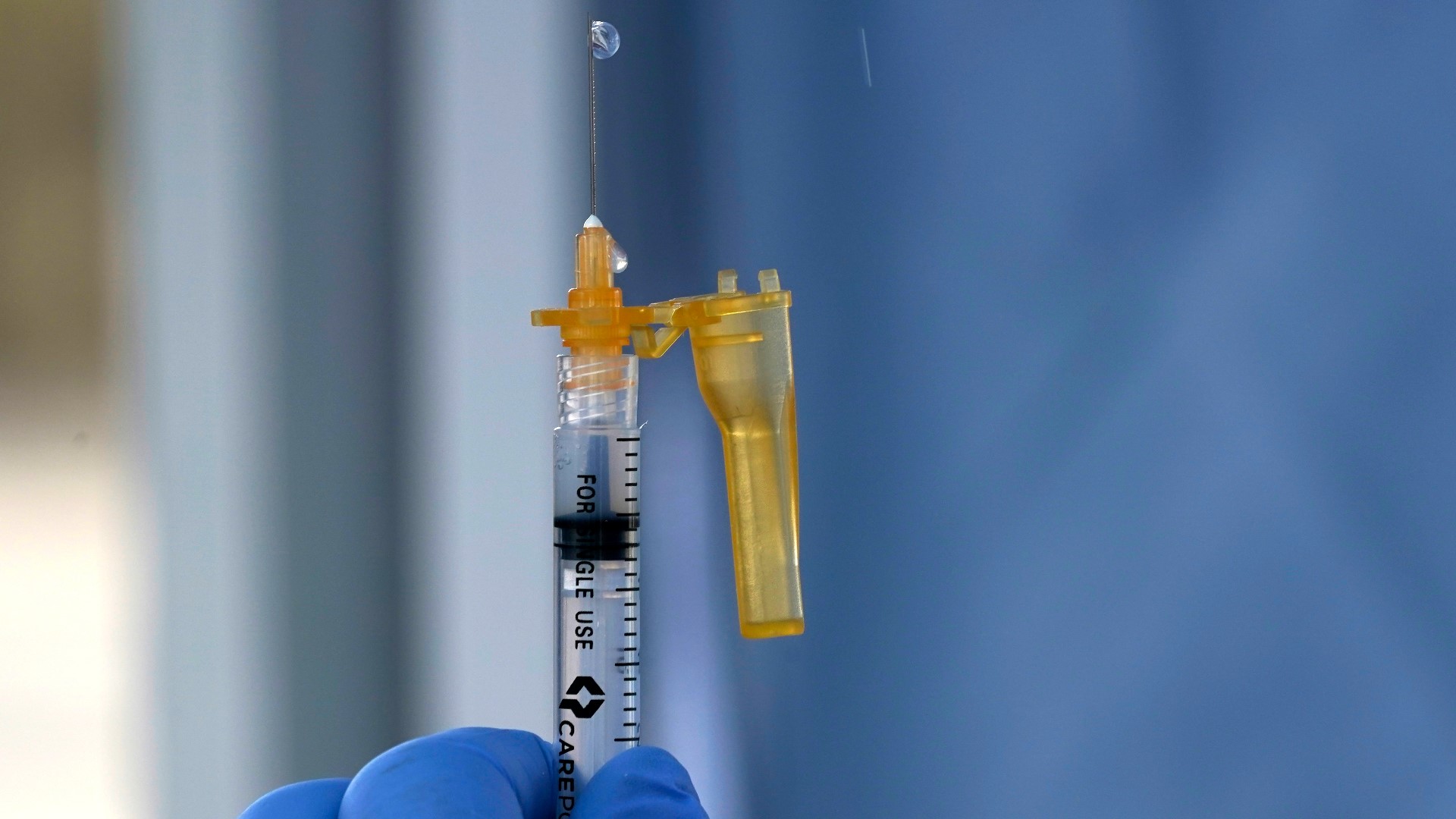SEATTLE — A CDC advisory group mulled COVID booster shots for immunocompromised Americans Thursday, as states across the country have dropped many or all pandemic restrictions, and cases fueled by variants rise.
An estimated 2.7% of U.S. adults are immunocompromised, meaning their immune system does not function properly either because of a medical condition, or medication. That can include patients that received organ transplants, are battling cancer, HIV, or have autoimmune conditions like lupus and rheumatoid arthritis.
Emerging research has shown some of these patients may not mount a full response to the COVID vaccines and are at higher risk for severe disease if infected with COVID.
When Washington dropped its mask mandate in May, a Fred Hutch infectious disease doctor warned these patients would need to get vaccinated, but behave as if they weren’t and continue social distancing measures.
In a live-streamed meeting, the Centers for Disease Control and Prevention (CDC)’s Advisory Committee on Immunization Practices (ACIP) considered new research testing a third dose for immunocompromised patients.
Of hospitalized vaccine breakthrough cases, 44% were immunocompromised people, according to a U.S. study shared in the CDC presentation.
Dr. Sara Oliver shared several studies of third COVID shots for these populations. Generally, they found of those with no measurable response to the initial doses, 33-50% produced antibodies when given an additional dose.
Data presented showed no serious side effects from the additional shot in these small studies.
“Emerging data suggests that an additional COVID-19 vaccine dose in immunocompromised people may enhance antibody response in some, and increases the proportion who responded,” Dr. Oliver said.
Dr. Rodney Ho with the University of Washington College of Pharmacy is not on the panel, but told KING 5 Thursday the process must balance emerging data on efficacy vs. any potential risks with an additional dose. Historical data for most vaccines indicates a third dose likely poses little risk, he said, but officials will want to further test that before issuing a widespread recommendation.
"So we need to be cautious on that extension," he said.
Additionally, it’s unclear just how much response is needed for full protection in these groups, so it could be dangerous to give patients a false sense of security.
“We want to save lives,” Ho said. “But how do you balance that then? And then from the regulatory perspective, from safety perspective, and from patient perspective? We're not doing harm, but really helping them.”
Dr. Camille Kotton of Massachusetts General Hospital and Harvard Medical School raised concerns that in a vacuum of guidance from the CDC, some immunocompromised people have sought out a third dose already.
“It doesn't look like there's a significant safety signal, as far as we know with additional doses of vaccine,” she said. “I am concerned about them doing this kind of in an unsupervised fashion. But as it is right now, due to regulatory issues, we are not allowed to recommend additional doses. So patients are really just doing with what they think is best.”
“I have major concerns about equity because in my experience, I have noted that it is patients who tend to be more educated and more empowered to take care of their own health care who are getting these additional doses,” Dr. Kotton continued. “So I worry that some are being left behind. Our hands are really tied with the current regulatory situation.”
When and if a third dose was recommended under federal regulatory mechanisms, it’s likely the most benefit would be to focus on those with moderate to severe immune system issues, Oliver said.
In the meantime, guidance remains the same for these people: get vaccinated, but continue protecting yourself with social distancing measures: mask up, avoid crowds and poorly ventilated spaces, stay six feet apart, and surround yourself with vaccinated people.
While discussion Thursday focused on a potential booster for these sensitive patients, Pfizer has been proposing a third booster shot for the general population. Federal officials have not recommended such a measure.
Dr. Vin Gupta of UW's Institute for Health Metrics and Evaluation (IHME) told CNBC this week that he's recommending patients who received the Johnson and Johnson shot to seek out a dose of the Pfizer or Moderna mRNA vaccines to protect against the delta variant.

